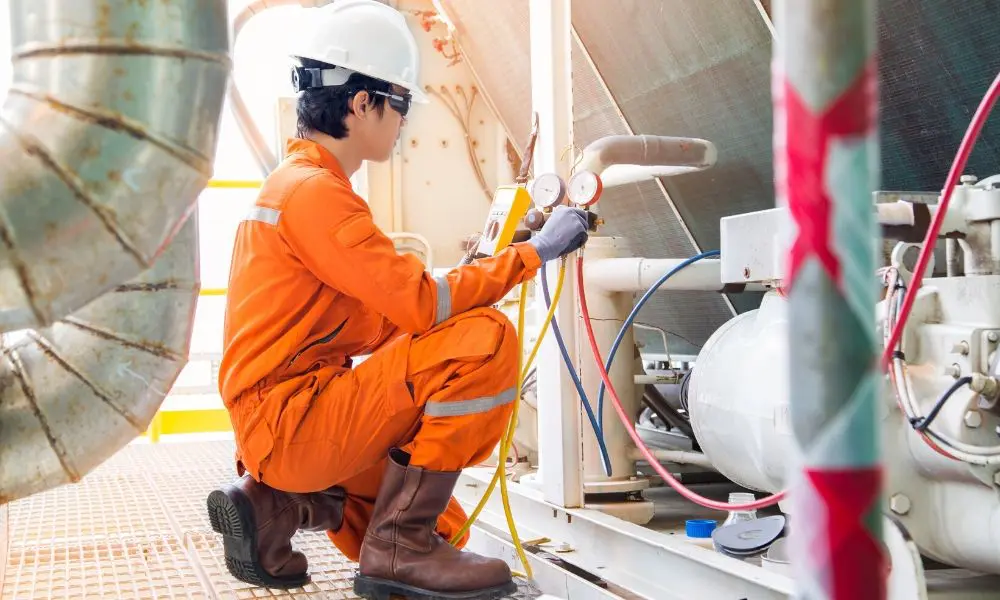The efficient management of HVAC systems is crucial in achieving optimal energy usage and maintaining environmental comfort in buildings. Integrating gas regulators with humidity sensors in HVAC systems is a technological advancement that significantly enhances system control and efficiency. This integration allows for precise regulation of air quality and temperature, contributing to better overall system performance.
Understanding the Role of Gas Regulators in HVAC Systems
Gas regulators play a vital role in HVAC systems, especially those that utilize natural gas heating components. These regulators ensure that the gas flow is maintained at safe and efficient levels, which is crucial for both performance and safety.
Key Features:
- Pressure Regulation: Gas regulators help maintain the correct pressure needed for the gas burners to function effectively, ensuring optimal combustion and energy efficiency.
- Safety Mechanisms: These devices are equipped with safety features that prevent gas leaks and ensure that the system operates within safe parameters.
- Efficiency: By regulating gas flow, these devices help minimize waste and reduce the overall energy consumption of the system.
For professionals looking to enhance HVAC performance, Midwest Supply offers a range of gas regulators that provide reliability and precision.
HVAC Humidity Sensors: Key to Environmental Comfort
Humidity sensors in HVAC systems are critical for monitoring and controlling the moisture levels in the air. Proper humidity control is essential not only for comfort but also for preventing mold growth and maintaining indoor air quality.
Key Features:
- Moisture Regulation: Humidity sensors help maintain optimal moisture levels, which can significantly impact comfort and health in indoor environments.
- Energy Efficiency: By integrating humidity control with heating and cooling operations, HVAC systems can operate more efficiently, adjusting output based on real-time humidity readings.
- System Integration: Modern humidity sensors can be easily integrated into existing HVAC systems, providing enhanced control over environmental conditions.
For those in need of sophisticated environmental monitoring solutions, the HVAC Humidity Sensor selection at Midwest Supply features cutting-edge technology that can be tailored to specific system needs.
Benefits of Integrating Gas Regulators with Humidity Sensors
Combining gas regulators with humidity sensors enables a holistic approach to HVAC management. This integration provides numerous benefits, including:
- Enhanced Control: This combination allows for precise control over both the chemical and physical aspects of air management, leading to more accurate temperature and humidity control.
- Increased Efficiency: Systems can reduce energy consumption as both gas flow and humidity levels are optimized according to real-time conditions, avoiding overuse and unnecessary energy expenditure.
- Improved Comfort and Safety: Maintaining ideal humidity and gas levels ensures a comfortable and safe environment for occupants, reducing the risks associated with improper gas pressure or poor air quality.
Impact on HVAC System Management
The integration of gas regulators and humidity sensors marks a significant advancement in HVAC system management. This technology not only improves the operational efficiency of the systems but also enhances the comfort levels in residential and commercial buildings. By automating and precisely controlling these elements, facility managers can ensure their HVAC systems are not only more energy-efficient but also more responsive to environmental changes.
Future Trends in HVAC Technology
As building technology progresses, the integration of various system components like gas regulators and humidity sensors is expected to become more common. These integrations facilitate smarter, more responsive HVAC systems that can adapt to both the needs of the occupants and the demands of energy efficiency standards.
By embracing these advanced technologies, industries can look forward to more sustainable and cost-effective solutions in HVAC management, paving the way for innovations that could redefine environmental comfort and safety standards. This strategic approach to HVAC system integration highlights the ongoing evolution of building management technologies and the continuous improvement in operational efficiencies they can bring.












Comments